Covering the Caucuses
Author: perkinsk
Author: perkinsk
Watching the nationally-broadcast second Democratic debate on Nov. 14 from the Sheslow Auditorium at Drake University, viewers couldn’t have guessed that the debate’s panelists had only seen full copies of their script just one hour before the cameras started rolling.
The day before the debate, 130 people lost their lives and hundreds more were wounded by gunmen in the streets of Paris, in a series of attacks which were later revealed to have been coordinated by ISIS.
Greenlee alumni debate panelists Kathie Obradovich, Des Moines Register political columnist, and Kevin Cooney, recently retired KCCI-TV news anchor, were on set for the first debate rehearsal as the attacks were unfolding. The debate’s sponsor, CBS News, was tracking developments and with just over 24 hours before the debate was scheduled to start, the panelists received word that drastic changes were being made to the script they were rehearsing. CBS News’s new plan for the debate was to focus on foreign policy and homeland security.
“After weeks of research, preparation and more than a little worry, I went to bed after midnight, not knowing for sure what my role in the debate would be or whether I would be on at all,” Obradovich wrote in a first-person column explaining how the events unfolded the following Monday.
She woke up the next morning and started researching some new questions on bioterrorism, until she received word that her original questions on economic issues had made the cut. Updates kept rolling in as the debate drew nearer. Just before noon Obradovich learned that she would be asking about Hillary Clinton’s email scandal, with about 90 minutes to research her question and prepare possible follow-ups.
Even though she’s spent her career working at Iowa newspapers, television is nothing new for Obradovich. Since 2009 she’s worked as the Register’s political columnist and before that served as the paper’s political editor during the 2004 and 2008 caucuses. In each role she’s been called on for many interviews with media outlets across the globe to share her knowledge about all things Iowa—its citizens, politics and its first-in-the-nation caucuses.
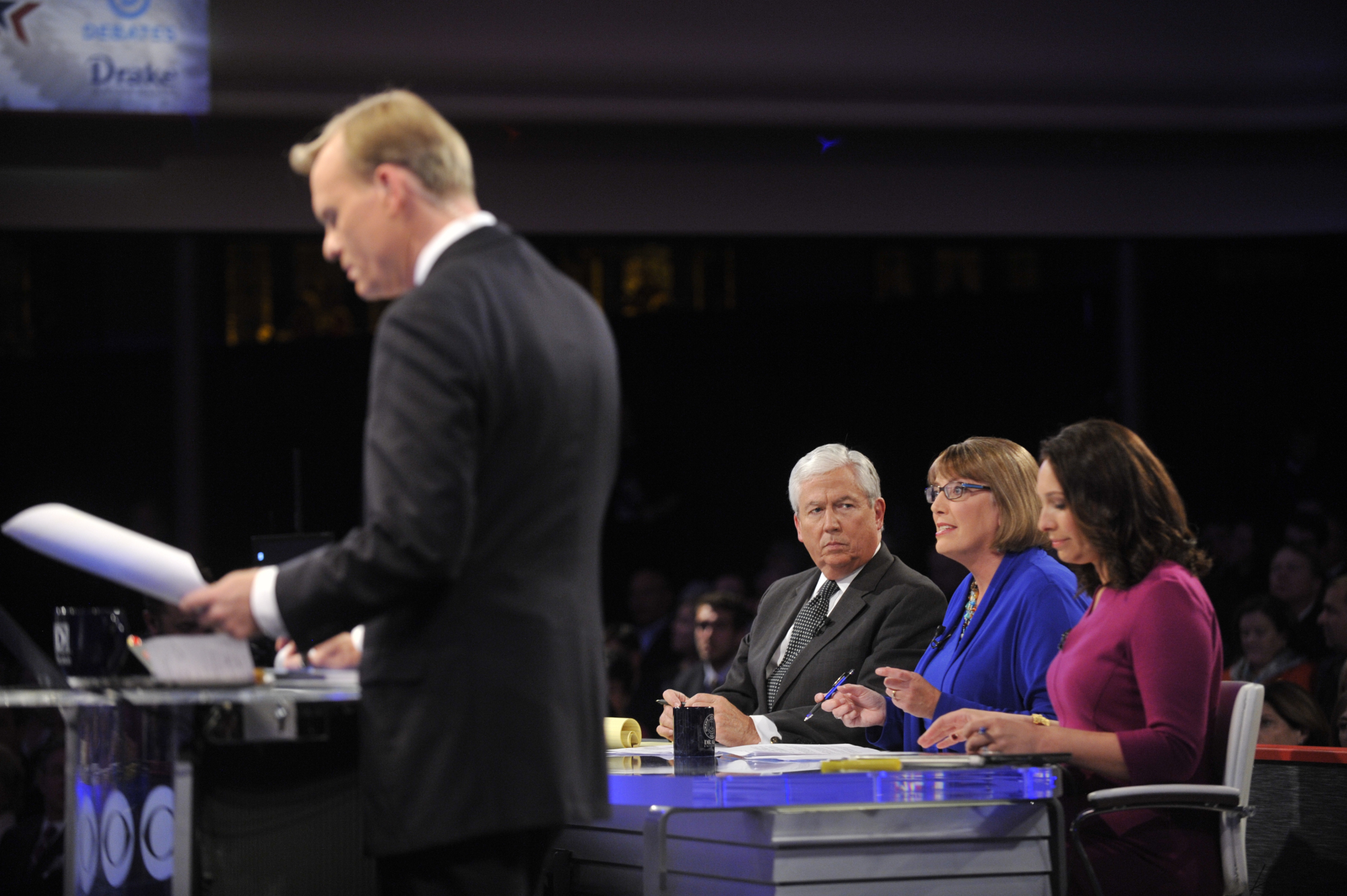
All the same, she admits that being on the presidential debate panel last November was mildly terrifying. The debate was not only airing in the wake of an international tragedy, but also of the third Republican debate, where the moderators from CNBC themselves became the story for their highly-criticized moderating approach and questioning of the candidates. The fact that she and the other panelists—Cooney and CBS News Washington correspondent Nancy Cordes—didn’t see the fully-revised script until 7 p.m.—just one hour before the cameras started rolling—didn’t help anything either.
“It was sort of like trying to jump on to a moving train a little bit, but it was really exciting,” says Obradovich, an ’87 journalism graduate.
By the time she took her spot at the panelists’ table, her nerves had subsided, Obradovich wrote in her column. Before she knew it, the debate was over. She and the rest of the panelists along with debate moderator John Dickerson of CBS kept the spotlight on the candidates and the conversation focused on the issues.
To Obradovich, that meant the debate was a success.
——
## Reporting for the Register
It’s not every presidential debate that two Greenlee alumni end up on a moderating panel, but their presence in caucus coverage is unparalleled. This is especially true at Iowa’s largest newspaper, The Des Moines Register.
When she’s not making appearances on television or moderating presidential debates, Obradovich can be found, often along with other Register reporters, on the campaign trail covering candidates as they make stops across the state.
As the biggest newspaper in the state that kicks off the nomination process for the U.S. presidential candidates with its caucuses every four years, the Register has become synonymous with politics on both state and national levels. The paper takes an all-hands-on-deck approach to its political coverage leading up to the Iowa caucuses in efforts to provide the most comprehensive coverage possible.
“We don’t only cover the ones who are high in the polls. We cover everybody, and we feel like we have that obligation to our readers,” Obradovich says. To honor this commitment, the Register assigned reporters to each of the 2016 candidates since last fall.
In the 2016 election, this was no small feat, considering the race began with 17 Republican and 6 Democratic candidates. Of those, 12 Republicans and 3 Democrats remained in the running going into the Feb. 1 caucuses.
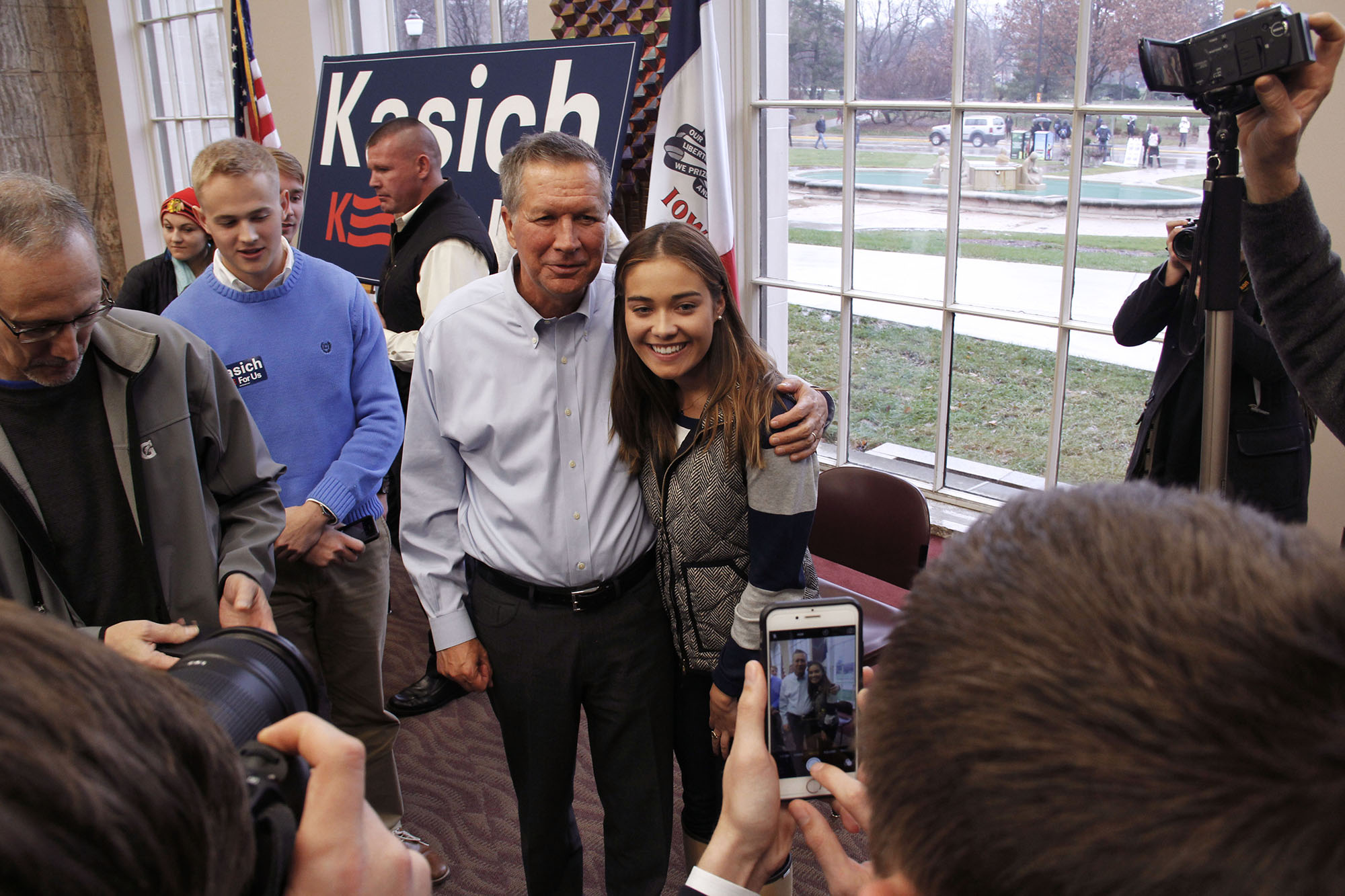

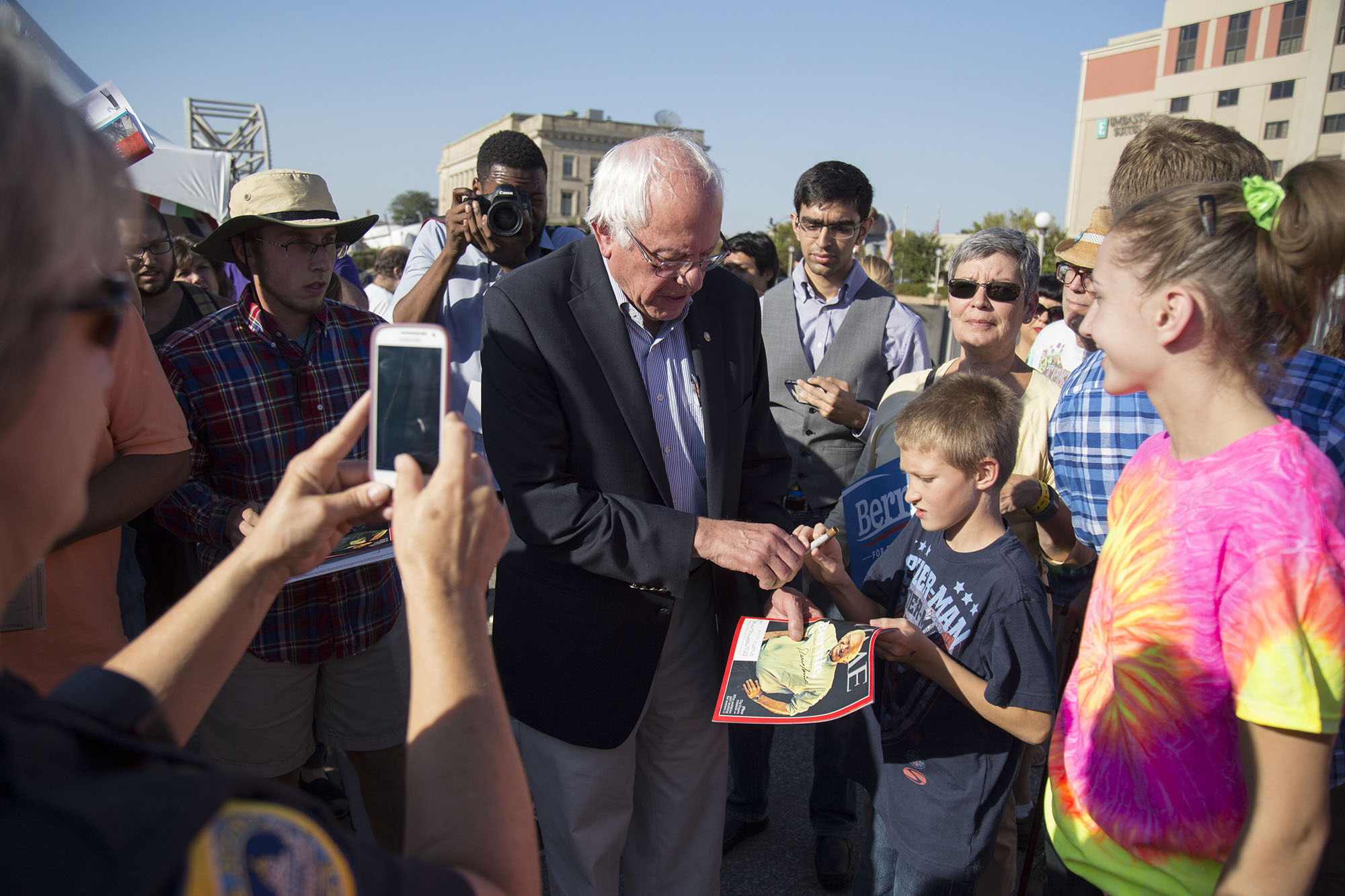
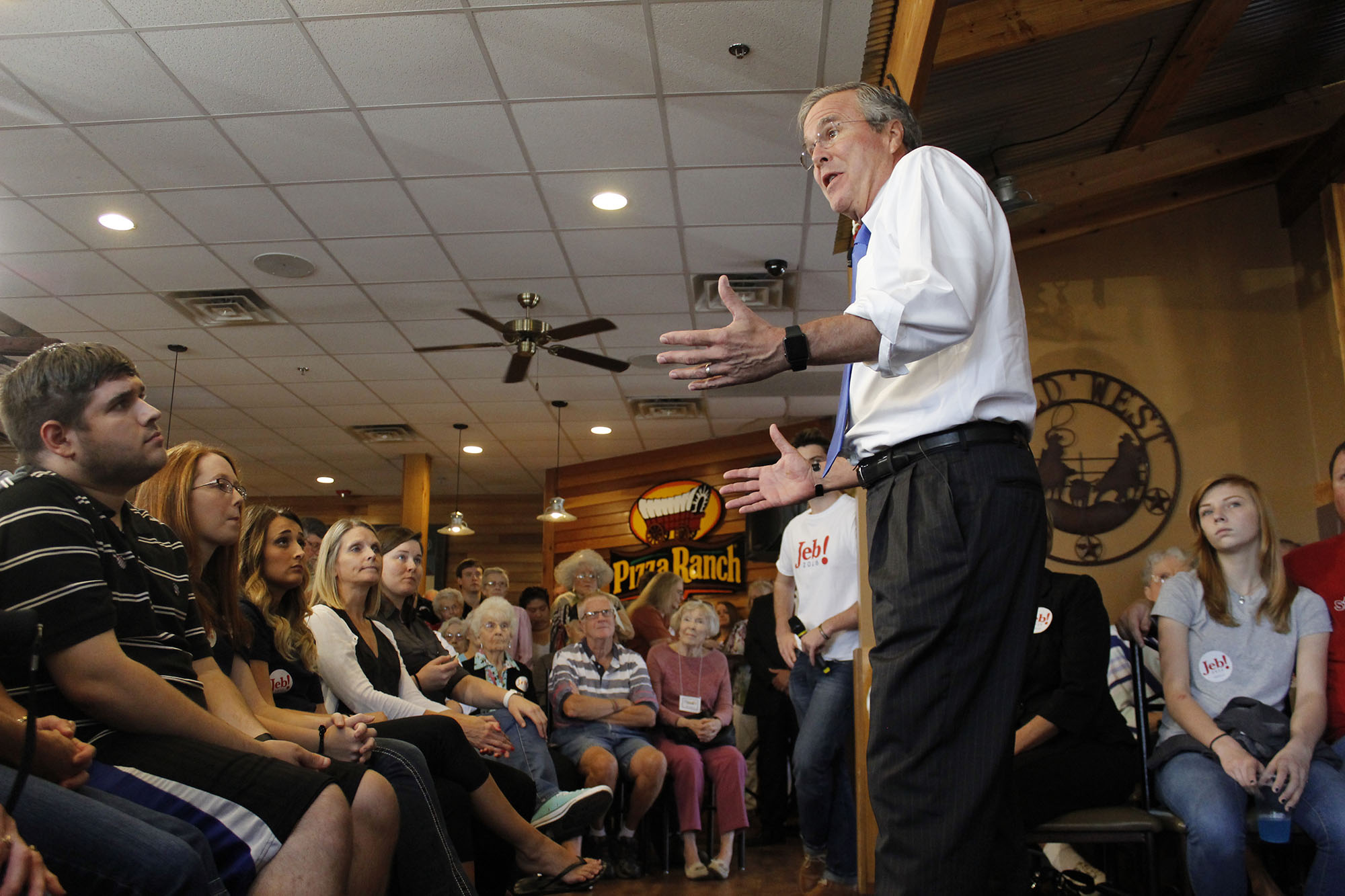
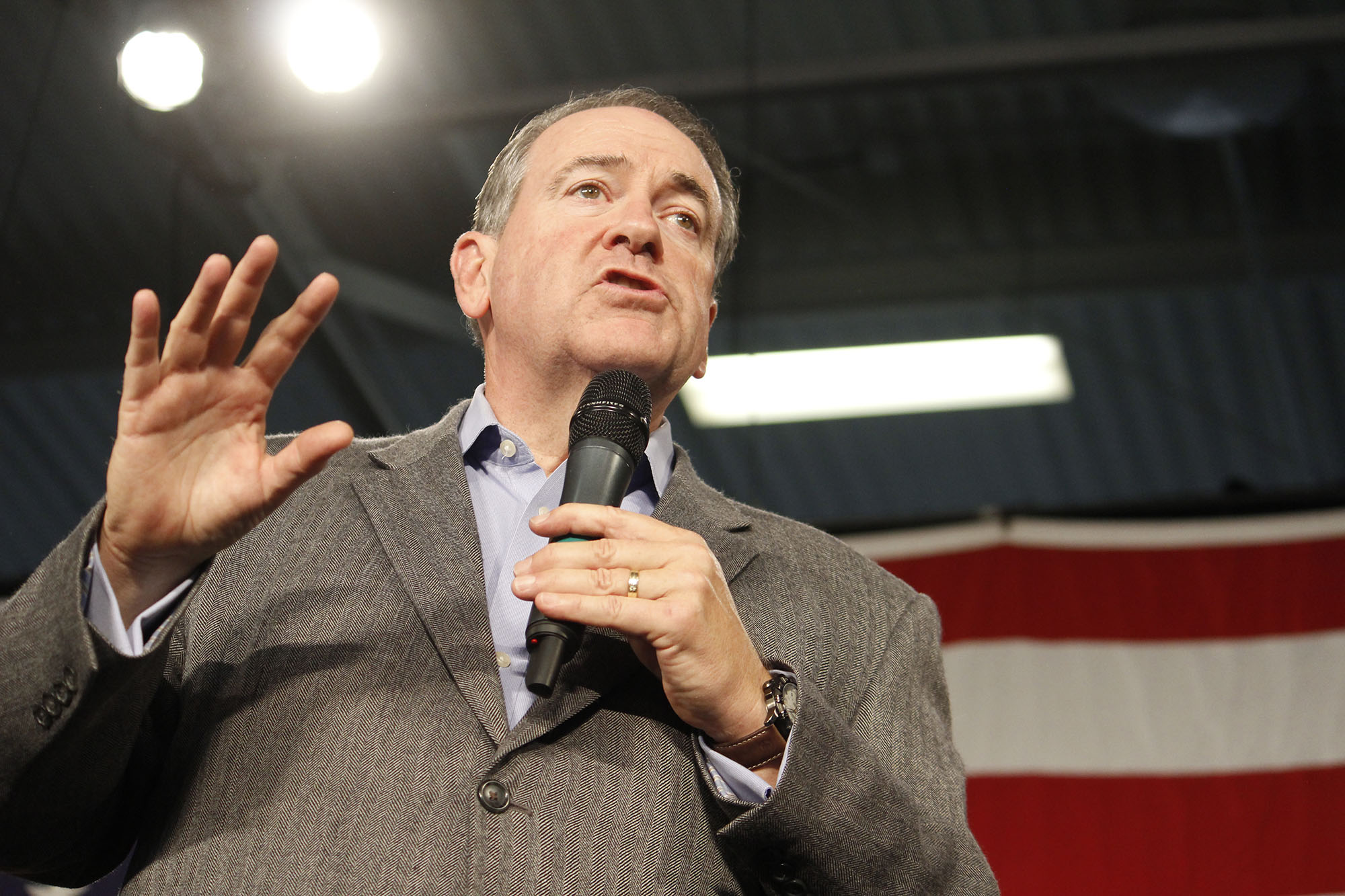
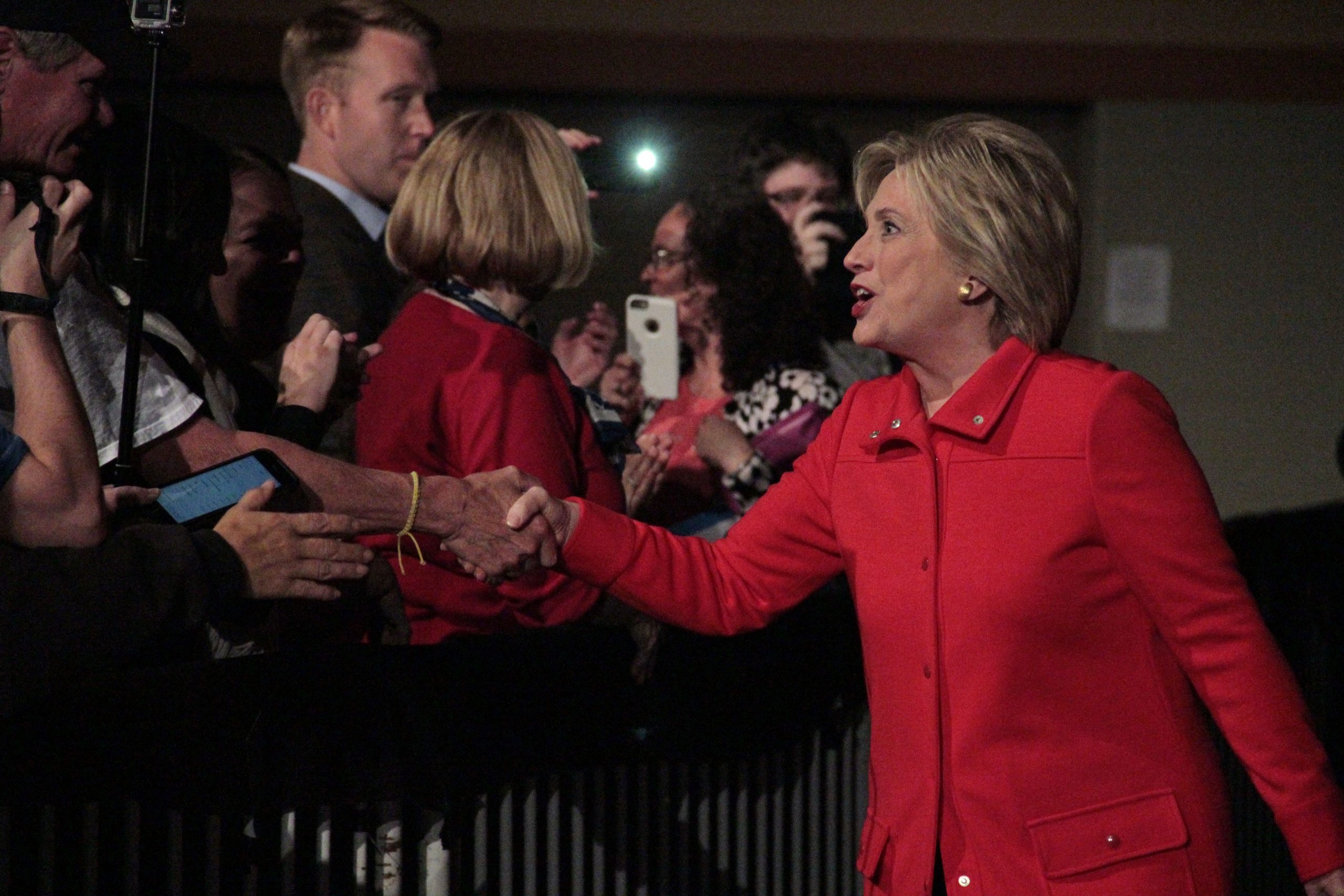
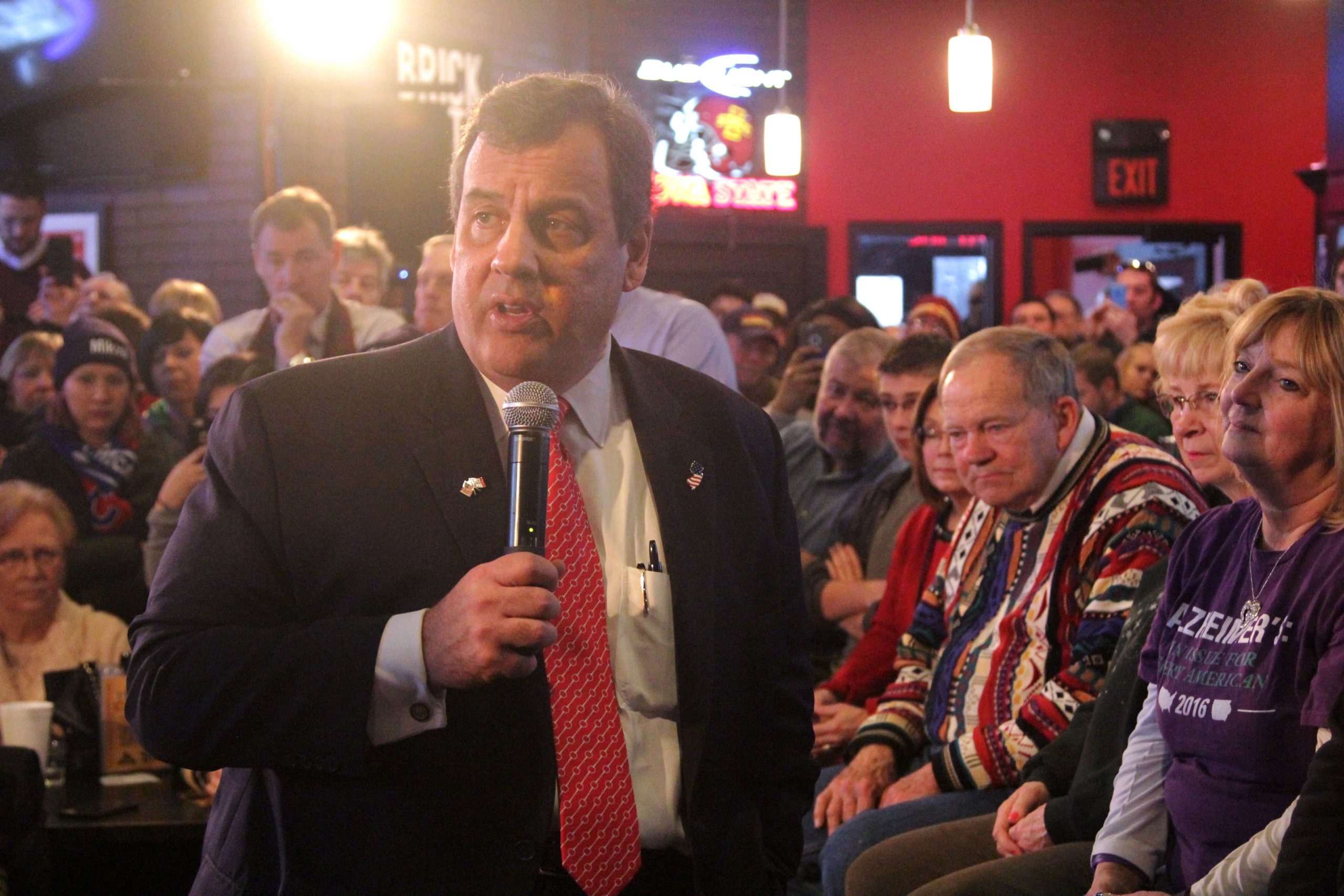
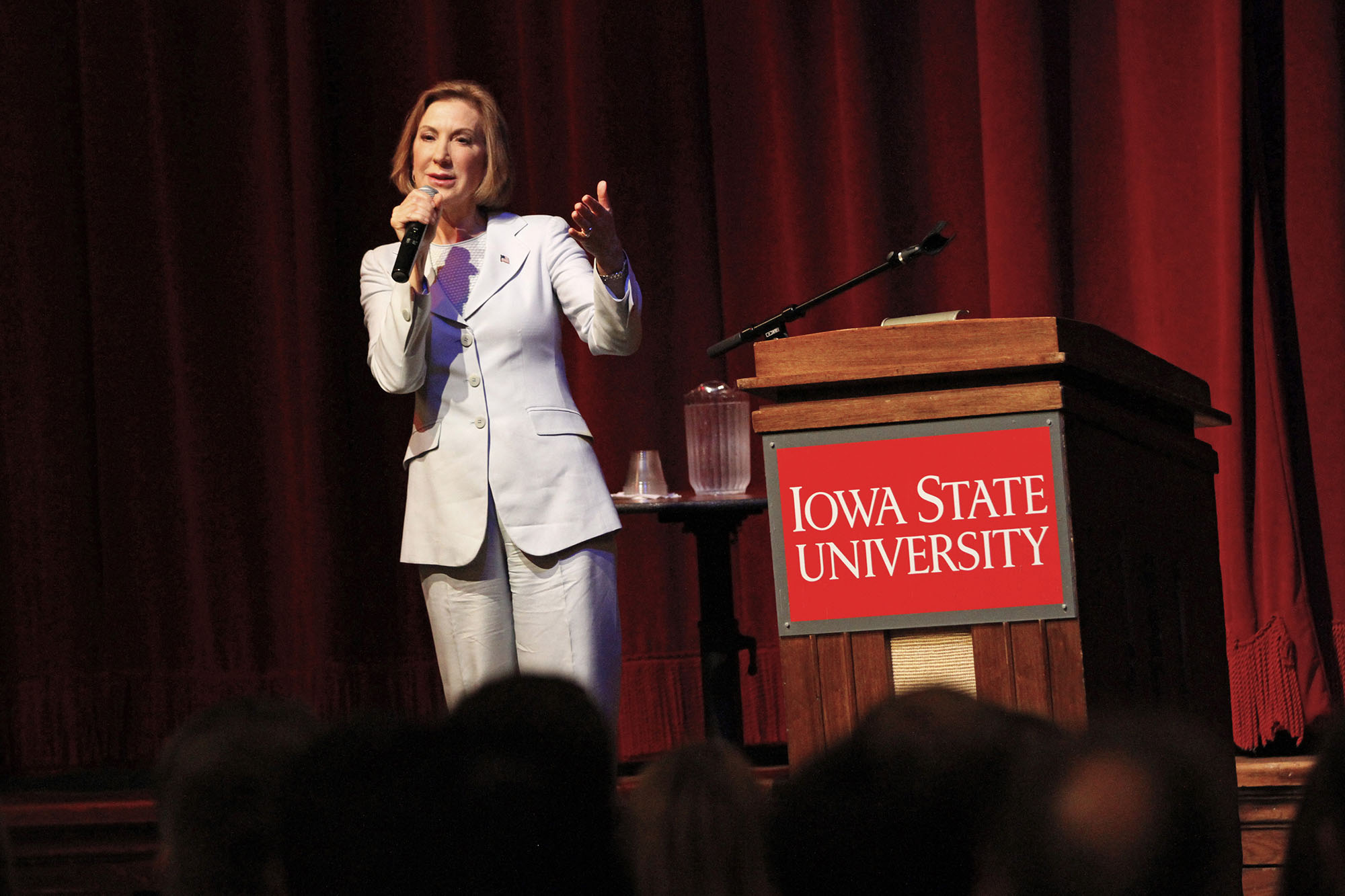
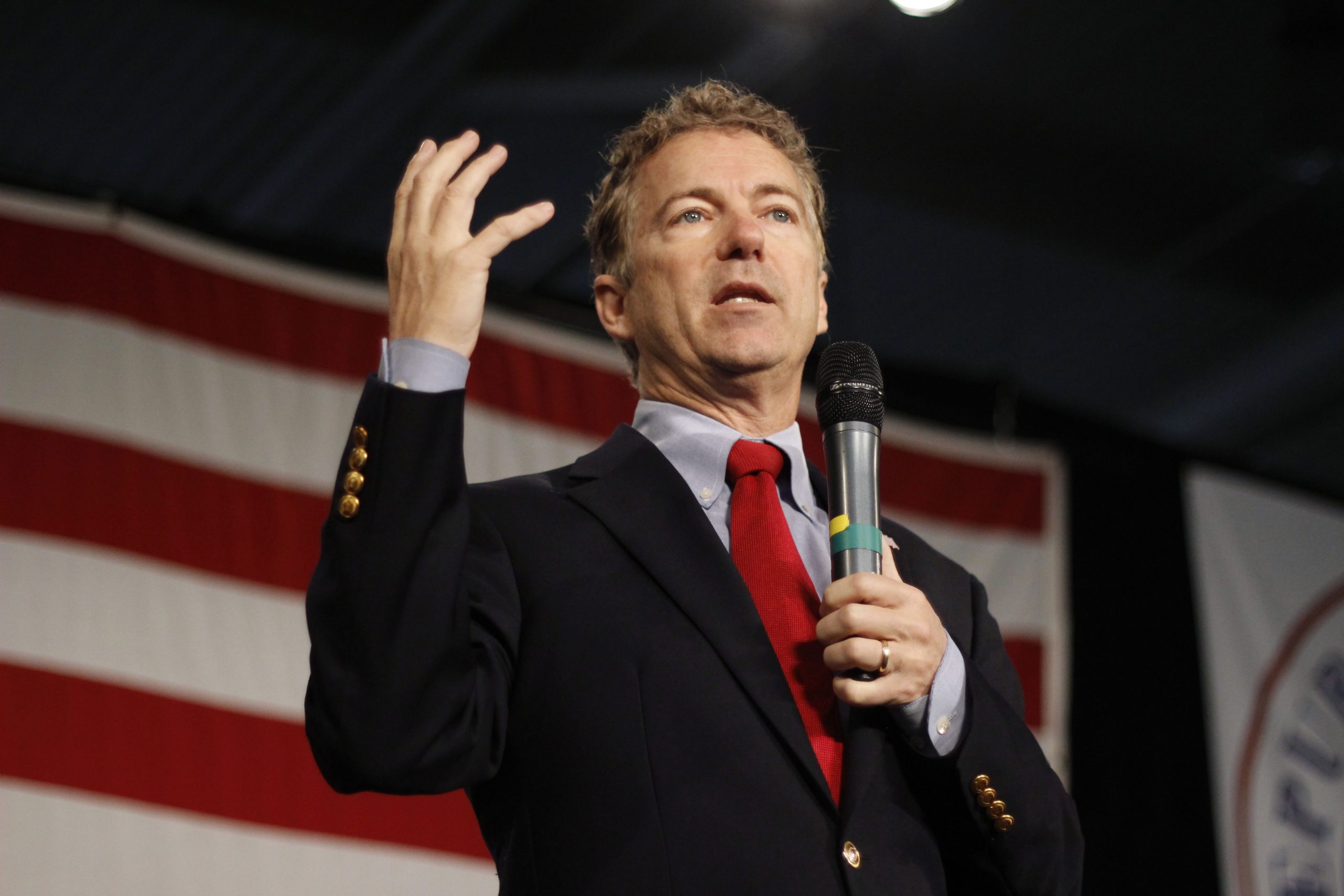
Register reporter Kim Norvell joined the paper’s staff in August, initially as a city reporter, but she was quickly tapped to cover candidates as they began to focus their campaigns on Iowa. In her first six months on the job, Norvell also covered two additional beats—first Democrat Jim Webb and then Republican Rand Paul.
After graduating from Greenlee in 2010 with a degree in journalism and mass communication, Norvell took a job as a city reporter for the St. Joseph News-Press in St. Joseph, Mo. The work was similar to her current beat at the Register, though she’s responsible for covering not one, but three of the largest cities in the Des Moines metro—Clive, Waukee and West Des Moines. The biggest change for Norvell was in adapting to the Register’s digital focus. “There’s a really strong eye at the Register for digital news. I think that’s been the biggest change—there’s a quick turnaround for getting your stories online and pushed out,” she says.
The Register requires reporters to track candidates’ positions and policies while following their campaign stops across the state. Webb wasn’t active in Iowa before dropping from the race in October, which made Norvell’s job relatively easy compared to her coverage of Paul’s campaign. As presidential candidates flood the state, political coverage becomes the priority and readers beyond Iowa start to pay attention.
> [Not just informing, but engaging](#engaging): Read how alumni at the Register are also working to engage their audience.
“The most challenging thing is knowing that it’s on a national scale and making sure that what you’re reporting is fair and accurate, because a lot of eyes are on us and that’s a big change from being at a smaller paper,” Norvell says.
Covering presidential candidates entails more today than ever for Register reporters. When Obradovich started at the Register in 2003 as its political editor, her team’s digital endeavors mostly included posting its stories online. With advances in technology and more people looking for their news and information on the Internet, the Register has taken a digital-first approach to its coverage, extending its reach beyond its daily print edition.
Rather than being assigned to cover events with a certain number of column inches for the next day’s paper, reporters are expected to produce stories as soon as possible to be posted online and shared through social media channels like Facebook and Twitter. Each assignment also comes with the expectation of providing supplemental digital coverage from the field, which often includes social media-specific coverage.
When it comes to social media, Brian Smith, a ’12 graduate in journalism and mass communication, serves as the Register’s point person. As the paper’s engagement editor, Smith is responsible for ensuring the Register’s presence as one of the state’s most prominent storytellers permeates the media their audience uses today. In the 2016 election coverage, this included expanding to new platforms like Periscope and Snapchat.
“Iowa going first is a privilege and that we take that very seriously to make sure that we’re doing the best job we can to get the best information in front of voters to help make their decision,” Smith says. “Sometimes that’s printed word, sometimes that’s video, sometimes that’s a Snapchat story. We’re committed to trying different things to get the information out there.”
Norvell’s first experience using Snapchat as a reporting tool came at the Iowa Democratic Party’s annual Jefferson-Jackson Dinner last October. Before the dinner started, she was covering the rally for Democratic presidential candidate Hillary Clinton—snapping quick interviews with supporters, 10-second clips of Clinton’s speech and even finding herself standing 10 feet away from Katy Perry at one point in the event.
Though she had used Snapchat personally, her biggest challenge using it as a reporter was overcoming the fear of compromising her objectivity.
“I was worried that I would be inserting myself too much into it,” Norvell says. She quickly realized that the behind-the-scenes perspective the application allows complemented the first-hand accounts of the stories she typically wrote or tweeted about. With Snapchat, she only added some contextual commentary, in addition to the app’s geofilters and even some emojis, when appropriate.
Like much of the Register’s coverage, its Snapchat presence is a collaborative effort among its staff. Reporters, photojournalists, interns and even Obradovich have taken over the account to provide first-person coverage of a wide variety of events across the state.
Kelsey Kremer, a ‘13 journalism and mass communication graduate, has covered every presidential candidate in the 2016 election in some way for the Register. Though she is just one of seven photojournalists, her job extends well beyond capturing still images. She regularly shoots videos, live-streams events and has even been specifically assigned to document events via Snapchat.
She’s caught some contenders at multi-candidate events like Iowa Sen. Joni Ernst’s first annual Roast and Ride last June. Others she’s been able to capture in more intimate settings—during one-on-one interviews with Register reporters, meetings with the Register’s editorial board or on the candidates’ own turfs and terms.
Kremer toured Donald Trump’s plane at the Des Moines International Airport before he officially announced his candidacy, along with a hoard of national media Trump threatened to make pay for any potential damages. She hitched a ride in Dr. Ben Carson’s Secret Service motorcade. She snapped photos of Rick Santorum moving furniture at a house party his campaign held in Waukee, and she was the only photographer to spend a January evening covering Martin O’Malley at Carl’s Place, a Des Moines dive bar, as he wooed caucus-goers with his guitar and some personal interaction.
One of her most memorable experiences was meeting Hillary Clinton at Kremer’s cousin’s coffee shop in Independence, Iowa. Kremer was documenting the second day of Clinton’s first trip to Iowa after announcing her candidacy and had just left an event in Cedar Falls when her aunt called her to say that the candidate would be arriving in 30 minutes for an unannounced stop before her next event.
Kremer couldn’t resist the opportunity and sped down Highway 20 from Waterloo to Independence. By the time she got there Clinton had already come through, but she had ordered a sandwich and promised to come back. When she did, Kremer was the only photographer in the room.
“I feel like that would only happen in Iowa,” Kremer said.
—–
## It Started at Greenlee
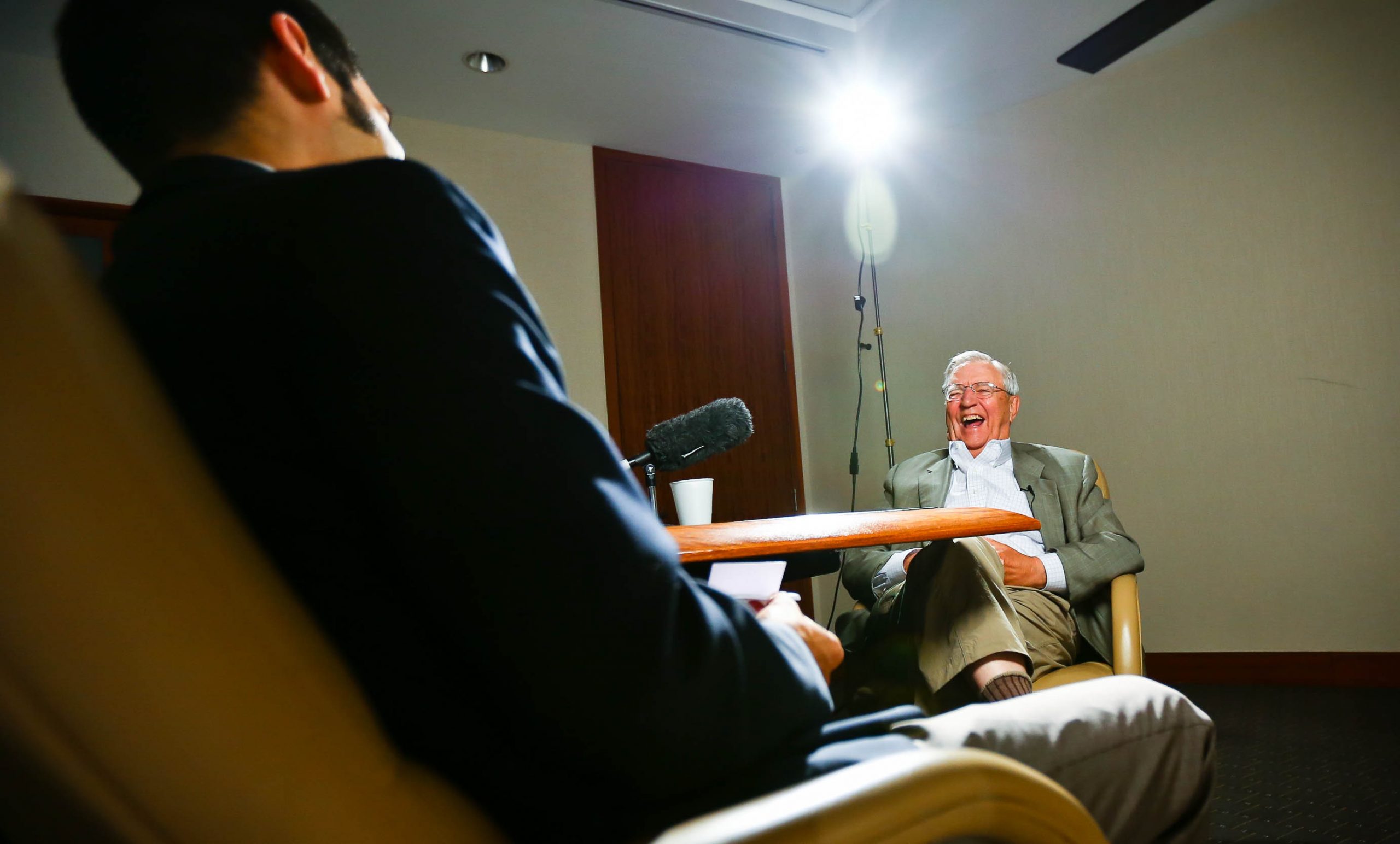
While 2016 is Kremer’s first presidential election for the Register, she and so many other Greenlee alumni earned their first stripes covering the Iowa caucuses as Greenlee students for student media like the Iowa State Daily and ISUtv. Kremer remembers cutting her winter break short in 2012 to return to Ames and cover the final events leading up to caucus night action. She spent caucus night surrounded by national media in the Google Media Filing Center that had been erected within the Iowa Events Center in Des Moines.
“I had no idea what I was doing then,” Kremer admits. But the experience set her up to take on similar events in the next election as a professional journalist.
As national networks like NBC, ABC and CBS reported on the results of the close contest between the top 2012 candidates Rick Santorum and former Gov. Mitt Romney, Kremer documented a snapshot of Iowa caucus history for the Daily—a shot of Matt Strawn, then-chairman of the the Republican Party of Iowa, declaring Mitt Romney the winner of the Iowa caucus.
Almost three weeks later, after vote recounts and the revelation that eight precincts’ results had gone missing, it was revealed that Santorum had actually won the caucus. This left many questioning the process, its validity and Iowa’s first-in-the-nation status in presidential elections.
These questions aren’t uncommon. Every four years since 1972, Iowa takes the national spotlight and media attempt to demystify why Iowa leads national elections. Register reporter Jason Noble, an ’03 graduate in journalism and mass communication, and his editors decided early in 2015 they wanted to do something different to provide historical context to the state’s first-in-the-nation caucuses.
As a fan of podcasts like “This American Life” and “Serial,” Noble found himself wanting to emulate their narrative style to tell the story of the caucuses using a variety of perspectives, from national figures to unknown Iowans who have been a part of Iowa’s political process.
“This is a story that’s going to be better told and a better experience for our audience as a podcast,” Noble explains. “As opposed to print, there’s a real richness that you can bring to it because you have people’s voices and a person’s voice alone can tell the story in a different way.”
The podcast, named “[Three Tickets](http://www.desmoinesregister.com/story/news/elections/presidential/caucus/2015/09/30/three-tickets-iowa-caucuses-podcast-debut-oct-8/73103038/),” became Noble’s pet project and dominated his job for about four months in 2015. He traveled to D.C. to interview historical figures like Bob Dole, winner of the 1984 Republican caucus, and David Axelrod, former adviser to President Obama. He also traveled the state to gather Iowans’ perspectives, spending a day touring northern Iowa with Senator Chuck Grassley and interviewing Iowa activists.
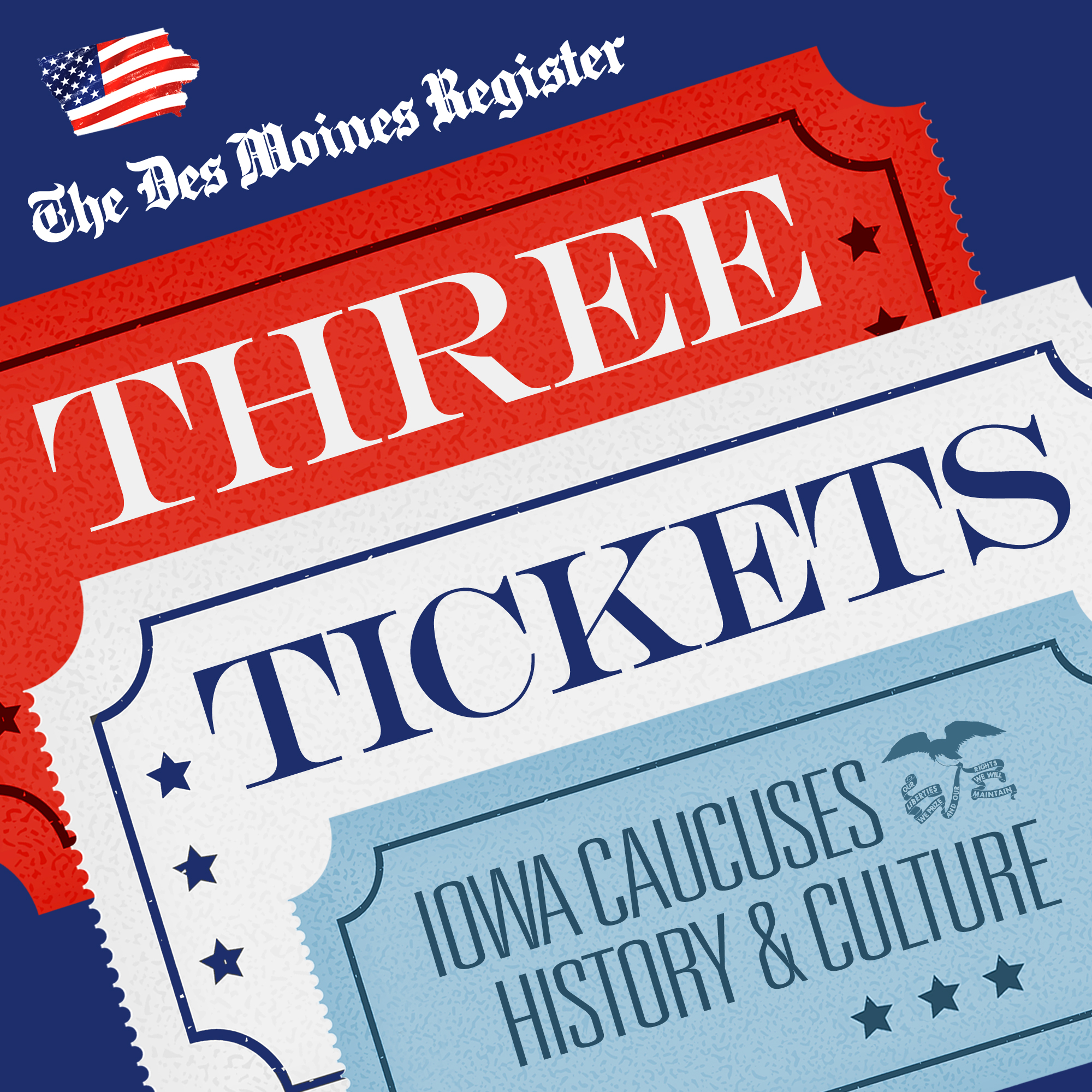
“This is not an authoritative history or explanation of the caucuses by any means, but we’ve captured some voices here for perpetuity that have a story to tell about the caucuses,” Noble says. “I think that really fulfills the mission of the Register to tell this story that’s so important to Iowa and Iowa’s place in political and American history in the last 40 years.”
Noble also got his [first taste of politics](http://www.desmoinesregister.com/story/news/elections/presidential/caucus/2015/10/02/three-tickets-podcasts-des-moines-register-jason-noble/73149490/) and the caucuses as a columnist for the Iowa State Daily. As he chronicles in the first episode of “Three Tickets,” his time spent on the campaign bus with Howard Dean in 2003 was his first experience with politics and the Iowa caucuses. He covered the 2004 caucuses the following semester and returned to the Daily in the fall as a news editor and covered the general election.
For a Kansas native like Noble, being in Iowa and working at the Daily, with unprecedented access to presidential campaigns, set him on a path that ended up defining his career.
“I try to let young people know any time I can—I tell them if you’re interested in politics you couldn’t be in a better place and you wouldn’t believe the opportunities that are open to you just by being here,” Noble says.
Current Greenlee students continue to benefit from the first-hand exposure they gain from Iowa’s top spot in national politics.
Alex Hanson, sophomore in journalism and mass communication, is the politics editor for the Iowa State Daily and oversaw the newspaper’s coverage of the state’s caucuses. As a double major in political science, the access that he and other students had to presidential candidates was a unique opportunity he couldn’t pass up.
Hanson conducted phone interviews with several candidates, including Bobby Jindal, Martin O’Malley and Rand Paul, and even got a few questions in with Carly Fiorina after a town hall meeting she held in the Memorial Union last September. Even as a self-proclaimed political junkie, Hanson admits that talking to the candidates who could be the next president of the United States left him feeling somewhat anxious at times.
“It’s a great experience that not many students get the chance to do while they’re in college,” Hanson notes. “I get to try to help inform people at Iowa State and I love doing it.”
> [Students Learn from Caucus Advertising](#ADVRT): Read how advertising students worked with the Register to track candidates’ ad spending in Iowa
For students like Kimberly Woo, senior in journalism and mass communication, Iowa’s political saturation is an entirely new experience. Woo is an international student from Malaysia, who had no experience with American politics before enrolling in Greenlee Associate Professor Dennis Chamberlin’s multimedia production course last fall.
Chamberlin and Assistant Professor Tracy Lucht both decided to take advantage of Iowa’s political standing and gave their classes a political focus the semester before the 2016 caucuses. Chamberlin’s multimedia students worked on the ground, providing an array of content to Lucht’s news and feature editing course. The two classes collaborated to publish their content online at [www.thenewvoter.org](www.thenewvoter.org)
In addition to covering candidates and events for the student-produced, millennial-focused website, Chamberlin also arranged collaborations with professional news organizations throughout the semester.
His students collected audio clips with Ames residents, some of which were used in a radio segment from IowaWatch on the issues important to caucus-goers. They also experimented with shooting 360-degree video for RYOT News, an organization based in Los Angeles, which supplies iPhones and RICOH Theta 360 cameras to people across the globe who make up their denizen journalism program.
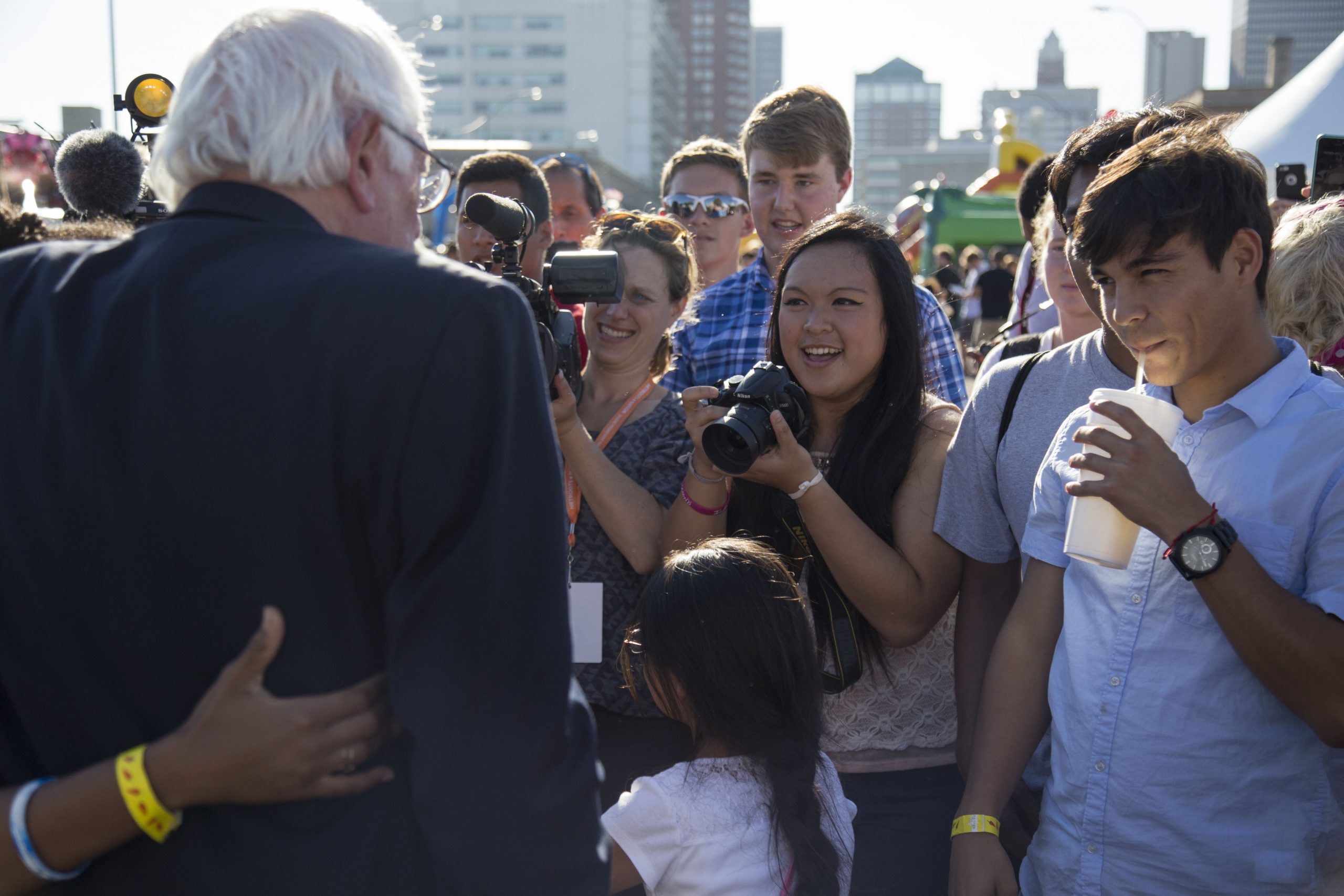
RYOT has cameras in Argentina, Iraq, Syria, Israel, Nepal, New York, Europe and two in Iowa that Chamberlin’s students used throughout the semester to cover the 2016 presidential election from the first battleground state.
“I love seeing how students open up from the beginning, when you can see that they’re a little bit timid,” says Joi Lee, head of RYOT’s denizen journalism program. “Towards the end when I see their videos, I see them with this persona, like ‘yes, I am here to report on this, let me get up to the front, go up to these people and interview them, let me get Jeb Bush to hold a Theta 360 and take a selfie with it or interview Ben Carson about students.’”
For students like Kimberly Woo, the chance to have her work published by a professional news organization inspired her to take on assignments outside of Ames. Her first experience using the Theta camera was at a Bernie Sanders appearance at the Latino Heritage Festival in Des Moines last September. She was surprised to be able to follow Sanders through the crowd and even more surprised to find herself in front of a swarm of media covering his speech.
“At that moment, for the first time, I felt like a real journalist covering the event in the middle of a crowd of reporters and photographers from national and local media outlets,” says Woo.
That feeling inspired Woo and others in the class to pursue more events throughout Iowa in efforts to publish work to their class website and possibly by RYOT.
“I just love the fact that this is a great learning experience for students to start to understand about the political process and also to get a taste of what it’s like to be covering a presidential candidate,” says Obradovich, who teaches an introductory reporting and writing course for Greenlee each spring when she’s not covering the caucuses.
As caucuses continue to take place every four years, every Greenlee student is able to try his or her hand at covering presidential politics. For some, like Kremer and Noble, this unique experience can change the course of their careers.
—–
##Sidebars
#### Not Just Informing, but Engaging
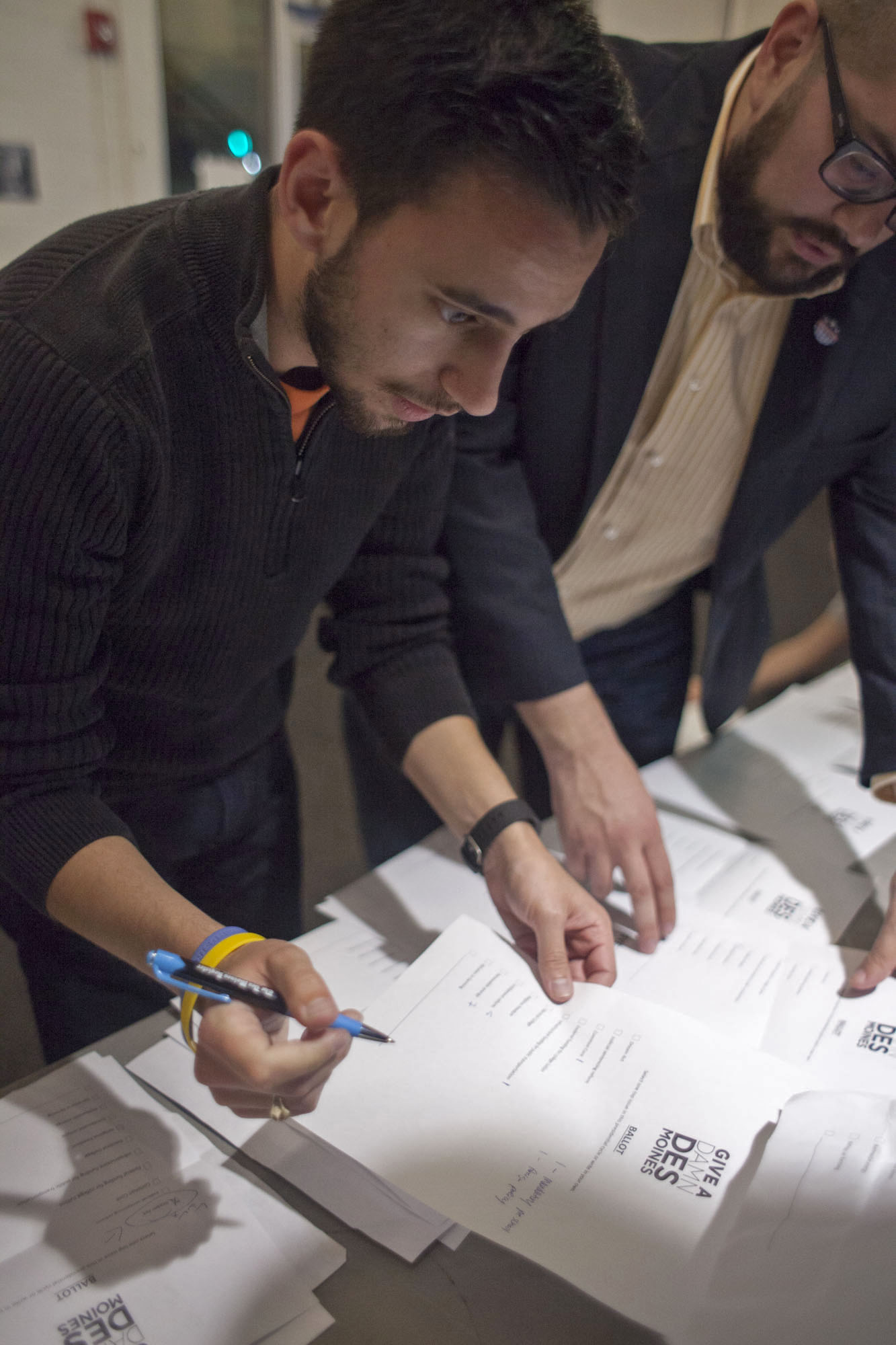
As the Register’s engagement editor, Brian Smith also takes a lead role on developing new outreach efforts for the newspaper in the Central Iowa community.
As the caucuses approached, Smith and his team at the Register applied for and received a Knight Foundation grant to host a four-part series, titled “Give a Damn, Des Moines.” The non-partisan caucus-themed series was designed to increase civic engagement and get attendees thinking about politics and the issues that effect their lives.
The series was open to all, but its main target was young people.
“The percentage of voters that caucus in their 20s and 30s is really, really low,” says Smith. “We knew that if we were going to try to make a difference and really connect with that age group, that writing stories or having a video about how to caucus wasn’t going to cut it.”
So the Register teamed up with the Des Moines Social Club and hosted events including a voter registration drive, mock caucuses for each party, a discussion on the issues that featured the Iowa Republican and Democratic Party chairs and debate watch parties.
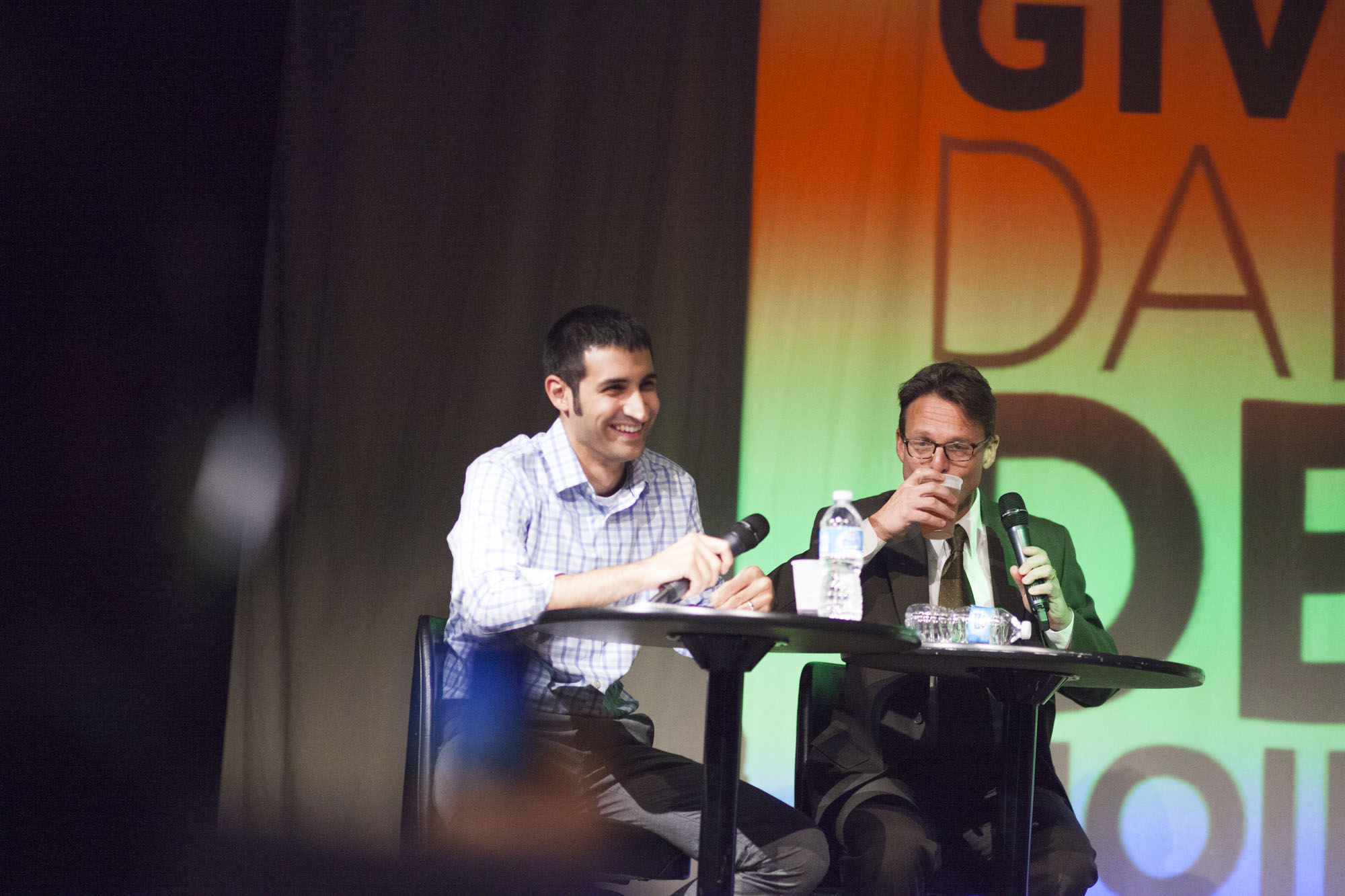
To help inform attendees, the Register tapped their own political aficionados, including Obradovich and Noble, who helped lead discussions and debates at the various Give a Damn events.
The Register wasn’t the only newspaper in the state to take a more active role in engaging Iowans. The Iowa State Daily also took on a larger role in assisting its readership in making sense of the caucus process. They did this by partnering with the ISU College Democrats and College Republicans to host mock caucus events at ISU AfterDark, an alternative entertainment event that the university hosts on Friday nights.
“The more people who turn out, the more people who exercise their voice, the better the results are for Iowa and for the nation,” Smith says.
—–
#### Students Learn from Caucus Advertising
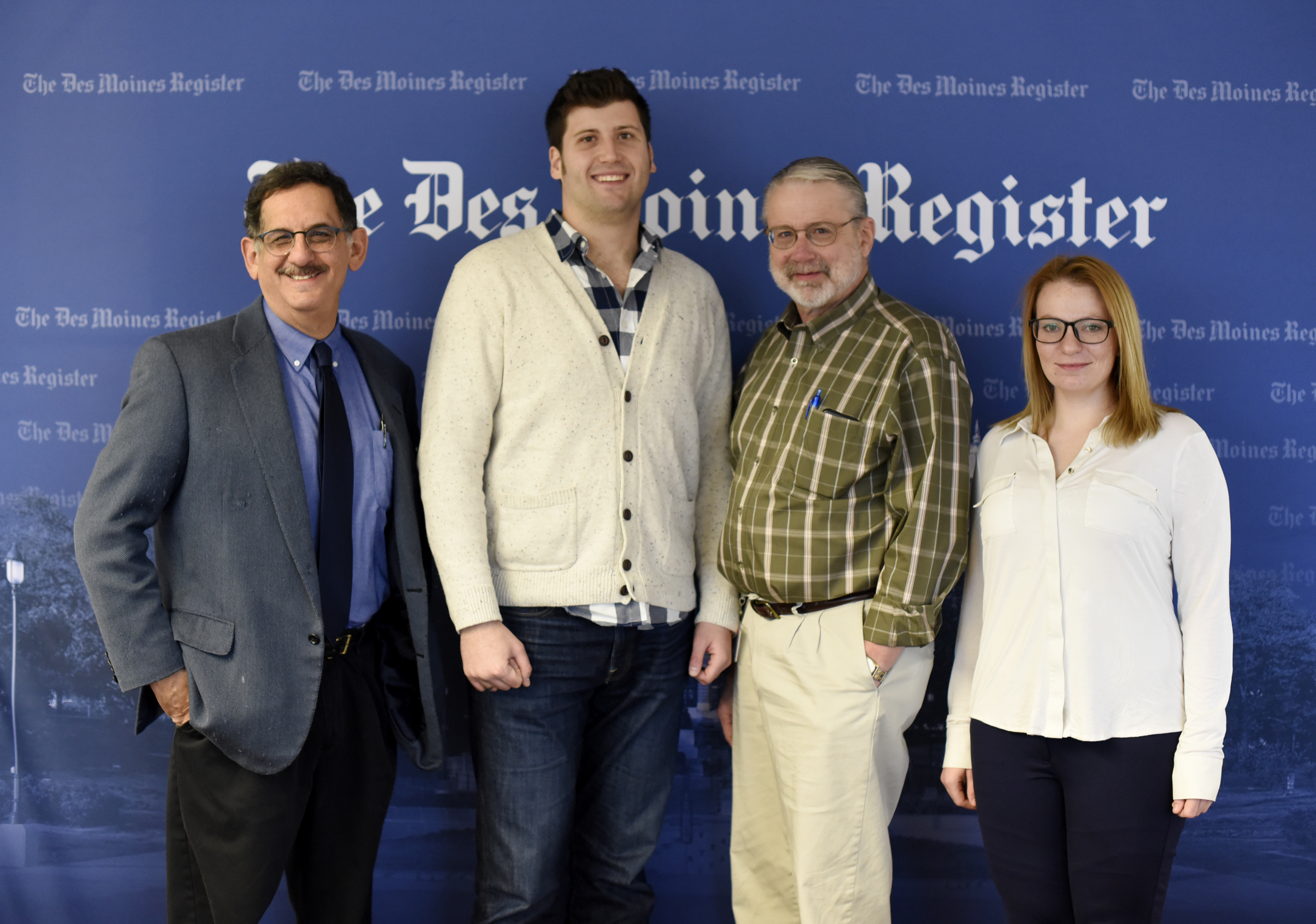
Students in Associate Professor Jay Newell’s media planning class typically spend the semester developing, executing and evaluating campaigns for products or services. As presidential candidates began to descend upon Iowa, Newell saw a learning opportunity where most just find annoyance — in the flood of advertising that followed the candidates.
“While there are differences between products and candidates, there are a lot of similarities too,” Newell says. “What this class gives us is really a window to see how messages are sent out there.”
Each of Newell’s 24 students were randomly assigned a candidate and a budget that was commensurate with their candidate’s actual resources. In the end, the experience provided a real-life lesson that Newell hopes left his students with a more sophisticated understanding of the limits of advertising.
“I think they saw in this cycle that more ads, and sometimes even better ads, may not be the keys to success,” Newell says.
A handful of students also worked with Newell on an extracurricular collaboration with The Des Moines Register. The students spent the months before the caucuses sifting through FCC reports and tracking who—candidates, political action committees or interest groups—spent money on what, where and when.
For senior Christian Spendlove, looking through the data provided an interesting look at what demographics campaigns were targeting, which markets their efforts were focused on and when they chose to cancel space they had purchased.
“I think it’s really cool to see where the money’s coming from and where it’s going,” says Spendlove, who worked as a digital consultant for the Romney campaign in 2012. Coming from Texas, Spendlove says that he found himself fascinated by the total saturation in Iowa markets.
Between Newell’s media planning class and his experience collaborating with the Register, Spendlove says that his fall semester confirmed that he wants to pursue media planning after graduating, possibly even in the political realm.